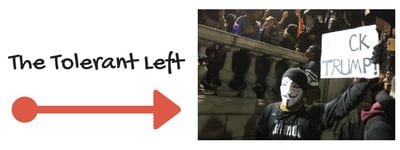The White House has finally confirmed that President Trump will make an official visit to the U.K. this summer. The trip has been a long time coming, but the road has been rocky with several cancellations and the threat of mass protests. Trump will stop by for a working visit on July 13, at the tail end of a NATO summit in Brussels.
British Prime Minister Theresa May was the first foreign leader to meet Trump after his inauguration, but the relationship has since fizzled. May extended an invitation to Trump for a state visit early on in his presidency, despite such invitations historically being offered during a president’s second term only. The invitation was later downgraded to a working visit that will lack such perks as an official banquet at Buckingham Palace or a procession in the Queen’s golden carriage. However, reports suggest that Trump will be meeting the Queen and a state visit is still on the cards later in the year.
May and Trump have never really hit it off, despite Trump’s family ties to the U.K. and initial positive overtures toward a post-Brexit trade relationship. The two have clashed publicly over issues including Trump’s so-called “Muslim ban,” healthcare and a retweet of U.K. far-right group Britain First. Brexit activist and Trump ally Nigel Farage has speculated that Trump has simply given up on a fruitful trading relationship with the U.K. as a result of May’s weak negotiation with the E.U. that will limit her ability to form bilateral free trade deals in the near future. “As soon as the UK is ready we will be prepared to negotiate an attractive trade deal,” Trump said at the World Economic Forum in January; E.U. negotiations have now settled March 2019 as the date Britain can begin its own trade talks.
Trump was expected in London to open a U.S. embassy in January, but snubbed the event, claiming that the new building was a “bad deal.” May’s recent cooperation in bombing Syria could have somewhat bridged the rift between the two, but reactions across the pond have been mixed.
A March of Millions, or at Least Thousands
It’s suspected that the fear of mass protests has been keeping Trump away from U.K. shores. Almost immediately after the July trip was announced, a Stop Trump Coalition started taking pledges from the public to attend a “march of millions” before and during the visit. Campaign organizer and columnist Owen Jones has called on demonstrators via Twitter to “make this the biggest demonstration in British history.” He added in his Guardian column that “A mass protest in towns and cities across Britain will represent a profound show of force against the xenophobes and the bigots. It will be a protest not simply against Trump but Trumpism, in all its guises.”
Leader of the Opposition Jeremy Corbyn has said he will join the demonstrators; luckily government officials have said Trump “will not have enough time” to meet with Corbyn, who had previously declared his wish to hold “serious discussions” with the president during the visit.
London Mayor and Trump’s arch nemesis across the Atlantic, Sadiq Khan, has also taunted him over possible demonstrations, tweeting:
“If he comes to London, President Trump will experience an open and diverse city that has always chosen unity over division and hope over fear. He will also no doubt see that Londoners hold their liberal values of freedom of speech very dear.”
A Divided Public
Fears of mass protests in London have lead to speculation that Trump will eschew the capital, instead heading for a rural retreat in England or even Scotland, the birthplace of his mother. Six conservative groups, including the Bow Group and Bruges Group think tanks, banded together in a letter urging Trump to choose Scotland as a “superior destination” over “far out of touch” London. Ben Harris-Quinney, chairman of the Bow Group, predicted crime, protests, and disorder over the President’s presence in the capital, and the letter recommends alternative sites:
“Scotland and the North of England also offer a variety of locations where you would be able to speak directly to ordinary British people and witness the true level of support that exists for you and the special relationship between the US and the UK.”
Despite the probability of demonstrations, the U.S. ambassador in London, Robert Johnson, insisted that Trump is “thick skinned” and “will definitely be coming to London.” Not all is doom and gloom, however; Foreign Secretary and previous London Mayor Boris Johnson tweeted enthusiastically about the visit:
FANTASTIC news that President @realdonaldtrump will at last come to Britain on 13 July. Looking forward to seeing our closest ally and friend on the GREATest visit ever.
A YouGov poll in February found that only 36% of Brits wanted the pending state invitation canceled and 49% wanted the trip to go ahead, while 15% didn’t know. Although the Stop Trump Coalition claims to be a grassroots movement, a look at its members reveals a who’s who of the British chattering class: politicians, celebrities, activists, and NGOs. Anti-Trumpers may be the more vocal and well-organized group, but the real British people are just as evenly divided on Trump as are his own citizens.



